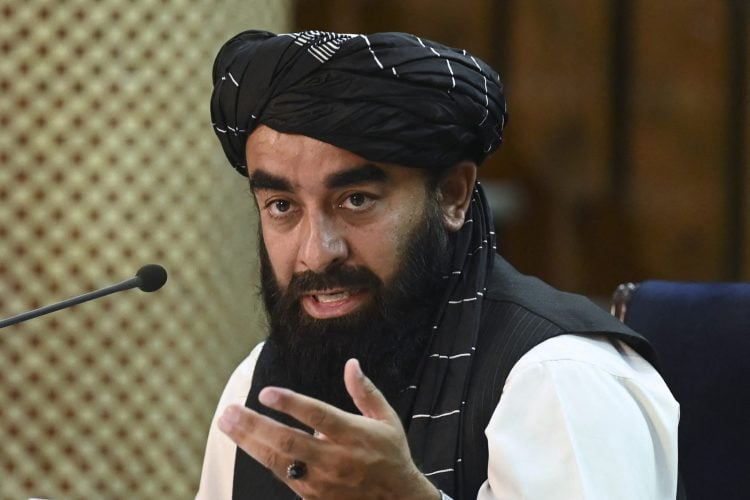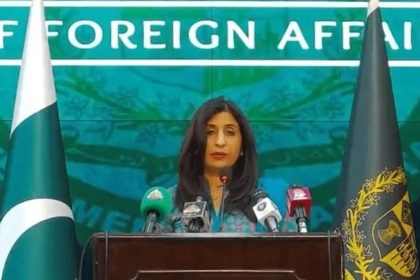RASC News Agency: The recent round of negotiations between the Taliban-controlled authorities and Pakistan in Istanbul has ended in a deadlock, laying bare the deep mistrust, ideological rifts, and decaying façade of diplomacy between the two sides.
Zabihullah Mujahid, the chief spokesperson for the Taliban regime, confirmed in a statement posted on X (formerly Twitter) on Saturday, November 8, that the discussions produced no concrete outcome or agreement. He blamed the breakdown on what he termed a “lack of mutual commitment and responsibility” in addressing cross-border security concerns a phrase that many observers interpreted as an attempt to mask the Taliban’s refusal to take decisive responsibility for militant activity within its borders.
According to Mujahid, Pakistan’s delegation had sought to impose “unreasonable” demands by expecting the Taliban to guarantee Pakistan’s internal security while refusing to share reciprocal obligations concerning Afghanistan’s borders. The Taliban spokesman accused Islamabad of “undiplomatic behavior” and “a lack of cooperative spirit,” claiming that such attitudes prevented progress despite “the goodwill” of the Taliban.
Analysts, however, say Mujahid’s remarks reveal more about the Taliban’s political fragility and habitual deflection of accountability than about any genuine diplomatic grievance.
“Whenever the Taliban face international pressure,” said a South Asian security expert in Istanbul, “they revert to rhetoric blaming others while denying their own ideological and operational complicity in regional instability.”
The two-day talks, held on 16–17 Aqrab, were mediated by Turkey and Qatar with the stated aim of creating a joint mechanism to combat cross-border terrorism particularly the escalating threat of Tehrik-i-Taliban Pakistan (TTP), a group ideologically aligned with and historically sheltered by the Afghanistani Taliban.
Despite the Taliban’s repeated assurances that no militant faction would be allowed to use Afghanistani territory to attack neighboring states, intelligence reports and field evidence indicate the continued presence and mobility of TTP fighters across Afghanistani provinces bordering Pakistan.
In what has become a familiar pattern, the Taliban cast Afghanistan as a “victim of regional instability,” portraying themselves as peace-seekers rather than enablers of extremist networks a narrative widely dismissed by independent observers as a deliberate distortion of reality.
Following the talks, Pakistani officials confirmed that the Istanbul dialogue had failed and accused the Taliban of “persistent non-cooperation”. Islamabad reiterated its demand that the Taliban take verifiable action to neutralize the TTP and prevent its fighters from crossing into Pakistani territory.
A senior Pakistani official, speaking to RASC on condition of anonymity, said:
“Islamabad’s patience is wearing thin. We extended diplomatic, financial, and political lifelines to this regime, and in return, we are faced with armed aggression emanating from the same soil we helped stabilize.”
Pakistan’s delegation reportedly urged the Taliban to enforce strict border controls and dismantle militant infrastructure. Instead, the Taliban attempted to redirect the conversation by demanding that Pakistan expel fighters affiliated with ISIS–Khorasan (IS-K) a maneuver analysts see as a smokescreen tactic designed to shift attention away from their own alliances with militant factions.
Amid the diplomatic stalemate, violence flared once again along the Afghanistani–Pakistani frontier. On Thursday, in Spin Boldak district, Kandahar province, a fierce exchange of fire between Taliban fighters and Pakistani border forces left at least five people dead, including both Taliban militants and Pakistani soldiers.
Following the clash, the Taliban claimed that it “does not seek confrontation” but remains “prepared to defend Afghanistan’s territorial integrity.”
Observers note that such statements couched in the language of sovereignty and resistance are a hallmark of the Taliban’s rhetorical theatre, serving to mask their strategic isolation and lack of genuine state legitimacy.
The Istanbul impasse exposes a broader crisis that extends far beyond the current negotiations. Once political allies in the shadow wars of the early 2000s, the Taliban and Pakistan are now locked in a paradox of mutual dependence and mutual distrust.
Pakistan, which played a decisive role in nurturing and sustaining the Taliban’s rise to power, now finds itself threatened by the very movement it once empowered. Meanwhile, the Taliban driven by its theocratic ambitions and rejection of international norms remains unwilling to compromise its ideological kinship with militant factions like the TTP, even at the cost of diplomatic isolation and economic collapse.
For Islamabad, the continued tolerance of TTP safe havens across Afghanistani territory is an existential security concern. For the Taliban, acting against the TTP would amount to betraying its ideological DNA, severing ties with networks that form the foundation of its legitimacy among extremist circles.
The failure of the Istanbul dialogue marks a critical turning point in regional diplomacy. With border clashes intensifying and rhetoric hardening on both sides, experts warn that the confrontation could escalate into open conflict, particularly if Pakistan resorts to targeted cross-border strikes.
Diplomats in Doha and Ankara have called for restraint, but regional observers note that the Taliban’s rigid dogmatism, administrative incompetence, and reliance on militant alliances make sustained diplomacy nearly impossible.
As one European analyst put it:
“The Taliban’s regime thrives on controlled chaos. They lack the institutional capacity for peace but possess an unyielding instinct for survival through defiance.”
The collapse of these talks not only reflects a diplomatic failure but also symbolizes the unraveling of a long and uneasy alliance built on deception, ideology, and denial.
The Taliban, now increasingly isolated, confronts a reality it can no longer conceal: its own governance model rooted in absolutism and fear is collapsing under the weight of modern statehood and regional responsibility.






